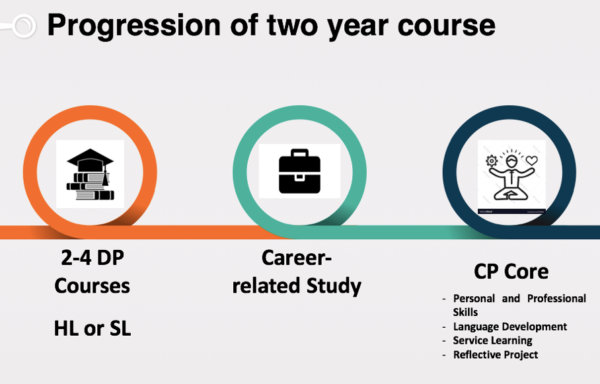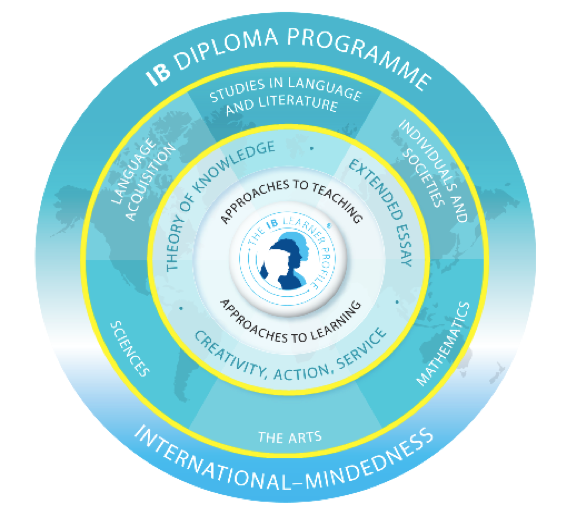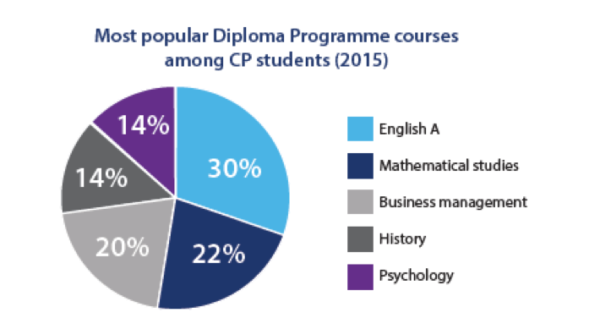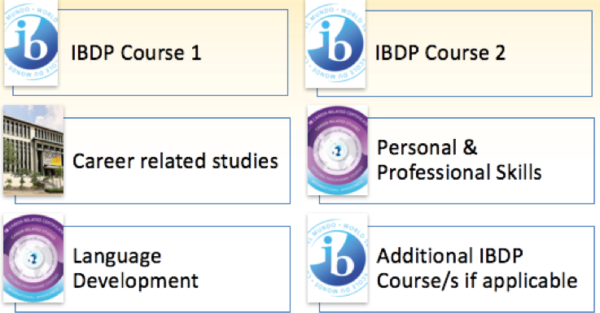
- About Us
- Wellbeing at RCHK
- Learning at RCHK
- Life at RCHK
- Communications
- Admissions
- Search
IBCP
THE INTERNATIONAL BACCALAUREATE CAREER-RELATED PROGRAMME (IBCP)
INTRODUCTION
The Career-related Programme (CP), like the Diploma Programme (DP), is an academic option open to students entering their final two years of secondary school at Renaissance College.
The CP takes a specialized approach, within an IB educational framework and philosophy, that can be customized to suit students’ needs, personal interests and strengths. The CP framework allows students to specialise in a career-related pathway that is suited to their enthusiasms and ability. Students take between two to four DP courses, at Higher or Standard Level, in combination with their career-related studies while fulfilling the relevant, related and distinctive CP core requirements. All components of the CP reflect a balance between career-related objectives and academic rigour with the aim of cultivating internationally-minded and well-rounded students, while allowing them to access multiple pathways including higher education, employment and apprenticeships. (Overview of the Career-related Programme, IBO 2015)
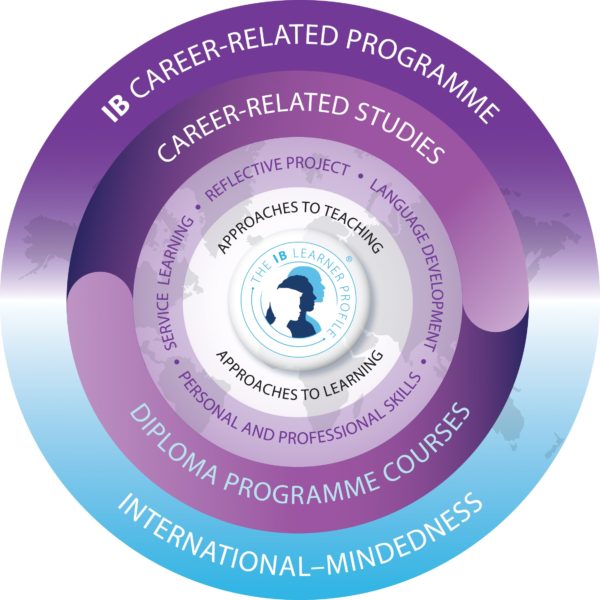
Source: Overview of the Career-related Programme, IBO 2015
The CP develops students to be:
- Academically advanced within their specialism
- Skilled in a practical field
- Critical and ethical thinkers
- Self-directed
- Collaborative
- Resilient and determined
- Confident and assured
- Caring and reflective
- Inquirers
PROGRAM STRUCTURE
There are three main components to the CP that take place concurrently over the two-year programme.
- Two to Four DP academic courses
- A core comprising of four components
- A career-related study
The choice of at least two to four Diploma Programme courses, with their academic rigour, support and enhance the theoretical underpinning of the programme. The CP core aims to develop personal qualities and skills along with the professional habits required for lifelong learning. Furthermore, the career-related study interlinks with the programme’s academic DP courses and provides practical, real-world approaches to learning. The DP courses also enhance and supplement the specialism that the student is pursuing. (Overview of the Career-related Programme, IBO 2015)
CAREER-RELATED STUDY
The career-related study is a course of study that prepares students for a specific career or professional field of study. It also provides the opportunity for students to learn about theories and concepts of their specialized field through application and practice, while developing specific skills, in authentic and meaningful contexts.
Currently Renaissance College has partnered with the Savanah College of Arts and Design (SCAD) Hong Kong and the Hong Kong Academy of Performing Arts (HKAPA) to offer career-related studies in Art and Design and Musical Theatre. Please see more details in Career-related Study Options at Renaissance College on pages 7 and 8.
CP CORE
The components of the CP core are designed to enhance the students’ personal qualities, professional development and judgement. The CP core contextualizes the career-related study and the Diploma Programme courses, and draws these aspects of the framework together. All components of the core are compulsory.
The Personal and Professional Skills (PPS) course aims to develop responsibility, practical problem-solving, good intellectual habits, ethical understandings, perseverance, resilience, an appreciation of identity and perspective, and an understanding of the complexity of the modern world. Emphasis is placed on the development of skills needed to navigate higher education, the workplace and society. (Personal and Professional Skills Guide, IBO 2015)
The PPS course comprises of a minimum of 90 taught hours, with the students expected to complete projects and assignments beyond these taught sessions. The PPS course is internally assessed and graded using a 1-7 scale which is also used for DP subjects.
Service Learning (SL) is the practical application of knowledge and skills towards meeting an identified community need. Students apply personal and social skills in real-life situations. In these contexts, they need to use and develop decision-making skills, problem-solving skills, initiative, responsibility and accountability for their actions (Service Learning Guide, IBO 2015).
A minimum of 50 hours is expected to be devoted to Service Learning.
Language Development (LD) ensures that all students have access and are exposed to an additional language, which is a central tenet of an IB education. The language skills they develop increases their understanding of the wider world. Students are encouraged to begin or extend the study of a language other than their best language in order to suit their needs, background and context of their specialist study. (Language Development Guide, IBO 2015)
A minimum of 50 hours is expected to be devoted to language development. The students are internally assessed on the development of their language development portfolio.
The Reflective Project is an in-depth body of work produced over an extended period and submitted towards the end of the second year of the programme. Through the Reflective Project, students identify, analyse, and critically evaluate an ethical dilemma connected to their career-related study. This work encourages students to engage in personal inquiry, intellectual discovery, creativity, action and reflection. In the process of completing this project the students develop strong research and communication skills. The project draws together the key elements of the CP, and is given equal weighting to the DP Extended Essay by UCAS. (Reflective Project Guide, IBO 2015)
A minimum of 50 hours is expected to be devoted to the reflective project. The students are externally graded by the IB on an A to E scale for the Reflective Project.
DIPLOMA COURSES
The Diploma Programme courses supplement the students chosen career-related study and also allows the students to pursue other subjects of interests. Students can choose two to four courses either at Standard or Higher level from any of the following subject groups:
Source: Guide to the International Baccalaureate Diploma Programme, IBO 2016
- Studies in language and literature
- Language acquisition
- Individuals and societies
- Sciences
- Mathematics
- The arts
CP students must study a minimum of two DP courses up to a maximum of four DP courses. The students engage with challenging academic content and through their learning they make theoretical connections for their field of study. Course content and assessments are identical to the IB DP and all the students are taught in the same class.
Upon completion of the DP courses and the other aspects of the CP, our CP students will achieve a Renaissance College High School Diploma accredited by the Council for International Schools (CIS) in Europe and Western Association of Schools and Colleges (WASC) in the United States.
It is important that students take courses that will allow them to successfully pursue their career-related pathway, which may mean meeting requirements for college or university as well. It is therefore important that course selection is discussed with either the CP Coordinator or the Vice Principal in charge of the IBDP and IBCP programmes. For more information on our IBDP courses please refer to our IBDP prospectus vis our website link: DP PROSPECTUS 17-19
Source: The International Baccalaureate Career-related Programme – Information for higher education institutions, IBO 2016
TAUGHT CONTENT
The taught content of the IBCP is as follows, and learning must be concurrent over the two years of the programme.
INDEPENDENT LEARNING
Service learning and the Reflective Project are the two independent learning components of the CP and must be completed outside of the taught curriculum.
CAREER-RELATED STUDY OPTIONS AT RENAISSANCE COLLEGE
Currently the Savanah College of Arts and Design (SCAD) Hong Kong and the Hong Kong Academy of Performing Arts (APA) are authorized to provide career-related studies for our students in Art and Design and Musical Theatre respectively. Both institutions are responsible for their own courses and their delivery. Each career-related study provider is in control of grading the students according to their own assessment standards. SCAD will also provide the students with a grade point average (GPA), which can provide credits towards SCAD’s higher education courses, or higher education courses at other institutions where applicable.
ART AND DESIGN PATHWAYS IN COLLABORATION WITH SCAD HONG KONG
Below are the details of the five foundations courses that our IBCP students take at SCAD Hong Kong. Information is taken from SCAD’s website: https://www.scad.edu/academics/programs
DRAW 100 – Drawing I: Form and Space
Students learn basic skills and techniques for drawing from direct observation using subjects such as still life, landscape and architecture. The depiction of form, light and spatial depth is emphasized along with accurate proportion and scale. Research tools such as thumbnail sketches, quick studies, sketchbooks and digital resources are used to develop ideas. Analysis of drawings, critiques and classroom discussions build vocabulary and enrich the students’ understanding of drawing.
DRAW 101- Drawing II: Composition and Media
This course reinforces and further develops the skills of direct observation established in Drawing I: Form and Space. Research and experimentation are utilised to refine the handling of black-and-white media, expand skills to include the use of colour media, and develop drawings that integrate content, concept and composition. Prerequisite(s): DRAW 100.
DSGN100 – Design I: Elements and Organisation
Students develop an understanding of the organisational methods used in two-dimensional work. They utilize the elements and principles of design while working in black-and-white and colour media. Problem solving processes and research are integrated into the development, refinement and evaluation of images. The work of professionals in a variety of art and design fields is analysed to understand the application of two-dimensional design. The importance of presentation and craftsmanship is emphasized.
DSGN101- Colour: Theory and Application
This course continues the skills developed in Design I, and develops an understanding of colour properties and relationships through formal exercises, research and creative thinking. Students build a vocabulary for analysing and identifying colour and colour phenomena. Concepts of colour theorists and colour use in a variety of fields are examined to understand the application of colour theory. Prerequisite(s): DSGN 100.
DSGN102 – Design II: 3-D Form in space
Students work with a variety of media and complete sculptural and architectural projects to learn how to manipulate 3-D forms and space. Creative problem-solving skills, including research, idea generation, support drawings and maquettes, are used to develop concepts and design plans. The integration of presentation options and craftsmanship with the concept is emphasised. The analysis and critique of three-dimensional work develops vocabulary and critical thinking skills. Prerequisite(s): DSGN 100.
PERFORMING ARTS PATHWAY WITH MUSICAL THEATRE AT THE HONG KONG ACADEMY FOR PERFORMING ARTS (HKAPA)
Below are the details of the six musical theatre courses that our IBCP students take at HKAPA. This programme is a BTEC (Business and Technology Education Council) level 3 subsidiary diploma in Musical Theatre accredited by EXCEL (Extension and Continuing Education for Life).
Module 1 – Performing to an Audience
This unit focuses on the realisation of rehearsed performance work to a live audience. It is the culmination of training, skills development and rehearsal work applied in the relevant performance discipline. Students will focus on their individual strengths in a performance role within the context of a full-scale theatre performance.
Module 2 – Jazz Dance
This unit will allow students to develop a good understanding of the style and key features of jazz dance, and develop dance skills working in a jazz style with the emphasis on practical work and performance.
Module 3 – Singing Techniques and Performance
This unit encourages the development and maintenance of the voice through regular and sustained practice. Singing at sight is also introduced and developed through the realisation of elementary vocal lines. It is also fundamental in developing the voice in terms of intonation, production and improving confidence.
Module 4 – Musical Theatre Performance
This unit enables the students to take part in a performance of musical theatre. Students will rehearse a role (or roles) which require them to use acting, singing and dancing skills in a musical theatre performance.
Module 5 – Singing Skills for Actors and Dancers
This unit enables students whose primary performance discipline is acting or dance to develop their singing skills. Students will be introduced to a range of different styles of singing and will rehearse and sing a number of different songs. Students will share their work with their peers in workshop performances of solo and ensemble pieces, which will take place on a regular basis.
Module 6 – Principles of Acting
In this unit the students will study key principles of acting using a range of techniques. Students will explore these principles both theoretically and practically and use the skills and techniques to develop characterisation and rehearse material for performance. The unit will also enable students to evaluate their rehearsal and performance processes and to consider the relative success of the different acting styles in communicating with an audience.
FURTHER EDUCATION
University / College
The IB CP allows students to access universities, colleges, careers and a number of other avenues for further learning. Our first two cohorts of IBCP graduates in May 2016 and May 2017 have been successfully accepted by the California Institute of Art (CalArt), Central St. Martins (University Arts London (UAL)), Kwantlen Polytechnic University, Canada and SCAD. For international recognition of the programme, please refer to our list of higher education institutions, which indicates where students have been accepted into universities and colleges after studying an IBCP programme.
Career Pathways
CP schools worldwide offer a variety of career pathways. In our context of an Art & Design career pathway the possible programmes of further study include the ones listed below.
- Advertising
- Animation
- Fashion
- Graphic Design
- Interactive Design and Game Development
- Illustration
- Interior Design
- Motion Media Design
- Painting
- Photography
- Sequential Art
- Visual Effect
- Fashion Marketing and Management
- Digital Media
- Television Producing
- Architecture
- Accessory Design
- Industrial Design
- Production Design
- Film & Television
- Furniture Design
- Historic Preservation
- Sound Design
- Art History
Similarly, students who undertake the Musical Theatre programme with HKAPA are also provided with a wide range of career paths as indicated below.
- Actor/performer
- Drama therapist
- Music therapist
- Theatre director
- Arts administrator
- Broadcast presenter
- Theatre stage manager
- PA technician
- Casting director
- Production
- Script writer
- Set designer
- Theatre critic
- Artistic director
- Singer
- Choreographer
- Conductor
- Concert promotion
- Music distribution
- Set designers
- Lighting and sound designers
- Agents and talent scout
- Teacher/ Lecturer
- Stand-Up Comedian
GUIDANCE AND SUPPORT
The CP students have a dedicated session for 1 hour 20 minutes every two weeks with our CP Coordinator to ensure that their wellbeing and support is being catered for as they complete their studies. All of Renaissance College’s counseling services and learning enhancement services are available to our CP students. Renaissance College has a Further Education office that fully supports our students with applications to colleges and universities. Additionally, students at SCAD and HKAPA can enjoy the student services provided on their respective campuses.
IBCP PERSONNEL
Vice Principal (Secondary) – Jess Davey-Peel
CP Coordinator – Wilma Shen
ESF Learning and Teaching Adviser (post-16) – Stewart Redden
Service Learning Coordinator – Lynne Wilson
FE/Careers – Martha DeVries, Suman Sachdev and Wilma Shen
FURTHER INFORMATION
Please contact Ms. Wilma Shen at wshen@rchk.edu.hk or Ms. Jess Davey-Peel at daveyj2@rchk.edu.hk for further details or any questions regarding the IBCP.
